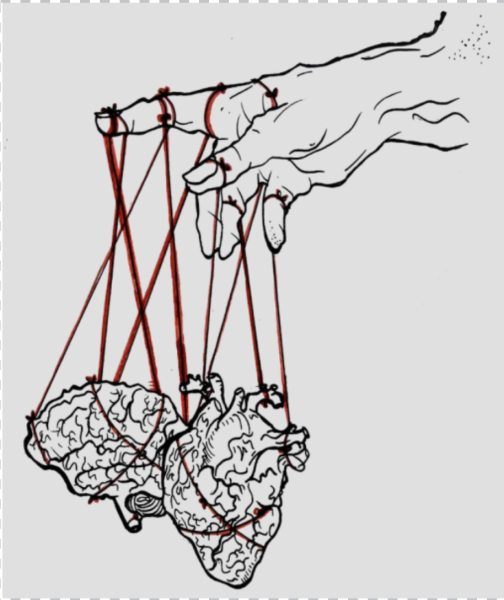Don’t Do Drugs
This article was published as part of the December 2019 issue. Of course, this was before the coronavirus – before partying was considered a public health risk. Do these attitudes about ISL’s substance use education still hold true today?
ISL’s approach towards substance use education is not conventional by any means. The school has a system within homerooms to discuss such topics with teachers as well as have Year 13s answer any questions regarding the substance use contract. By pairing up with organizations like FCD (Freedom from Chemical Dependency) and The Learning Curve, we are given professional advice about the use of drugs and alcohol.
From an outsider’s perspective, this would seem like a solid approach. The school is taking necessary steps by understanding that education about substances is something that should be taught in school, and the school administration is having constant discussions with parents and counselors.
However many students question the approaches the school takes. One student remarked: “I think that it’s good that we talk about how addiction can ruin lives and the clinical health reasons as to why you shouldn’t consume alcohol as a teenager, but we haven’t really touched on the social side of things: we’ve only looked at dealing with peer pressure. I feel like there is a lot more to it apart from the fact that it’s addictive and you can be pressured into doing it. Drugs and alcohol can be so confusing as a young person.”
At the moment, students in year 10 and 11 are allocated a 15 minute daily session in homeroom dedicated to Social and Emotional Learning. In addition to SEL, there are monthly well-being discussions, led by Ms Vivian, for one period. We have 45 minutes of “wellbeing time” a month where there is no certainty that we cover such topics. Although an organization comes in to speak to us for a double period once a year, this is the only time exclusively dedicated to substance use.
Naturally, students feel like the amount of time we have to discuss substance use is insufficient. “I think the whole school is trying to squeeze their whole drugs and alcohol education in one double period,” said one student. Others feel that homeroom isn’t an appropriate time or place to discuss this. “I don’t really understand why homeroom is the time when we talk about this stuff. I’m not going to be comfortable to talk about drugs and alcohol in front of my homeroom teachers because they’re going to judge me.”
Many feel they don’t have sufficient knowledge about what to do in a situation when somebody is in danger due to an alcohol or drug related incident, or how to drink responsibly.
The school understands that parents are the biggest authority in a child’s life. In light of recent events concerning Year 10 students, the administration felt a need to communicate with parents on the approaches they should take as a collective force in ensuring that the students make responsible choices.
Right from the start of the meeting, it was evident that the school needed to make sure they had a mutual understanding with the parents when it comes to expectations involving substance use. Both groups collectively agreed that high school is a time for exploration and experimentation, and it is only natural for teenagers to rebel.
The general consensus among students was that speaking with their parents was just too awkward. Speaking about drugs and alcohol in a school environment would allow students to be more open. “It’s just awkward to talk about this stuff with my parents,” said one frequent drinker. “I would much prefer the school told me the details.”
During the meeting, school administrators reflected on the approaches taken to educate children and parents about responsible decisions. They understood that by making parents exclusively watch out for parties going on without parental supervision, they moved the problem to a potentially unsafe environment. They also highlighted the importance of conversation and discussion – students should be able to talk openly about it with both the school and their parents.
While the school understands the importance of discussion, there can be a lack of discourse with students. “I wish I could just have an open discussion with another student,” remarked one girl in year 11. “We’re just listening and nodding our heads. Like, I get why drugs are bad and why I shouldn’t do them, but I want a student to just tell me their experiences right there and then.”
Many parents disagree with the way the school deals with incidents regarding irresponsible drug or alcohol usage on school campus. The school views suspension as a time of reflection, whereas some parents feel like students should be punished for their actions.
Some parents also feel that due to the nature of the school and its size, there is a lack of communication between parents. Many feel the school should set up a support system to ensure parents know what is taking place between students to give them some peace of mind. Parents also feel like there is a need to uncover the root cause as to why students are taking up such behaviours: is this part of teenage experimentation or is it something more serious?
The school administration understands the severity of the issue: they are in the process of having discussions with the school counsellors. According to one of the school counselors, they understand the lack of time given to educate students about substances, but many teachers disagree with prioritizing wellbeing time over their lessons.
ISL has made many advances when it comes to dealing with educating their students about the potential consequences of drug and alcohol usage. At the end of the day, it is up to the student to make informed choices, but we need to work towards creating a culture where such choices are the right ones.

I’m Tanvi, Editor-in-Chief of The High. I’m The High’s resident pretentious music snob™, which is a title that I take very seriously. When...


